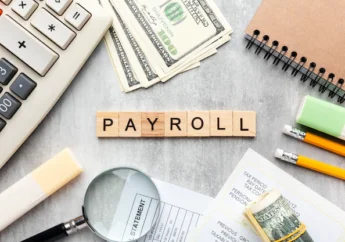Becoming a Force to Be Reckoned With: 8 Ways You Can Improve Your Financial Literacy as a Business Owner
by Mashum Mollah Finance 22 December 2018

Not many can say, with confidence, that they are financially literate. Only a small number of people are aware of how to properly manage finances, resource debt, understand the stock market, or even save for retirement. Fortunately for you, in today’s world of information at the click of a button, you can find all the information you need online.
If you are looking to improve your financial literacy, you need to give yourself time. It will not happen instantaneously and it may take a little more self-study then you bargained for. But, at the end of the day when you are looking down the barrel of your financial statements, you will thank yourself for it. Take a look at the following 8 ways you can improve your financial literacy and become a financial force to be reckoned with:
1. Now or Never:
If this sounds like a call to action, you better believe that it is. While it is never a bad time, or too late, to begin learning about finances and economics, it is best to do it immediately. This is because there is plenty to learn about, and once you open the lid to Pandora’s box you will start to see just how far down the rabbit hole you need to go. From the intricacies of investing and insurance to how credit cards and credit scores work, there is much more than first meets the eye. The trick is to start something. Pick one topic and begin there, once you have a general grasp of the intricacies of one financial topic, you will find the rest will be easier to understand. Choose one topic that interests you a little bit more than the others, and use that you build as your financial literacy foundation.
2. Find Resources:
By finding proper resources, you will be able to educate yourself correctly. The best way to go about this is to find resources from your government. If you are living in Australia, you can find by brilliant resource by visiting www.invoicefinancingaustralia.com.au.
If you are living in the United States, you can find excellent government resources affiliated with the U.S Treasury and you can find a simplified break down of all you need to know as well.
In recent years, the U.S government has made efforts to help citizens improve their financial education.
3. Read Financial Media Publications and the News:
Every day you can turn on the news and learn about what new development is happening with the money markets, trade deals between countries or simple money matter. This is an easy way to keep yourself UpToDate and to educate yourself in what is going on in the economic and financial world.
There are many newspapers and media publications that are focused solely on the economic and financial markets. Take a browse through some of the following publications:
- Wall Street Journal and the Financial Times are two newspapers known for their expertise in all things business and finance. The focus on global matters so you will be able to get the low-down on what’s happening anywhere in the world.
- The Kiplinger Letter is a longstanding newsletter that has been running in the United States since the 1940s. IT was first published in 1947 and was the first financial newsletter of its kind to be published.
- There are countless financial publications, many of which have great online articles, and you just need to find a couple that you like and that you find interesting. Some of them are Forbes, Money and Barron’s.
4. Surf the Web:
Check out some of the cable news network’s online. The internet is an open resource for anyone looking to learn something new. Many of the financial news agencies have finance sections. You will also be able to find some educational tutorials, web seminars, and resources that can provide in-depth knowledge on a certain topic.
5. Take a Class:
Whether you want to enroll in an online class or attend a physical class, you can learn a lot from a teacher. You could find a class at an adult education center or an online college. There are plenty of books that have been written on financial subjects, you simply need to do a bit of digging to find an author you want to learn from.
6. Acquire Financial Tools:
Financial tools like a financial calculator can help you to figure out things like loan payments, interest rates, percentages, cash flow, and even amortization. You can also use the financial calculator to help you figure out annuities, savings, leases, and even mortgages.
Do some of the above terms make little to no sense to you? Then you might want to purchase a dictionary developed for financial literacy. Take a look at some of these:
- Wall Street Lingo: Thousands of Investment Terms Explained Simply
- Webster’s New World Finance and Investment Dictionary
- Dictionary of Finance and Investment Terms(Barron’s Financial Guides)
- Standard & Poor’s Dictionary of Financial Terms
7. Investment Clubs:
The main goal of an investment club is for the members or participants to learn how to invest their money, more particularly in stocks, and how to make a high return. Generally, the group size is approximately 10-15 individuals and joining the group means you are making a long-term commitment.
If you want to learn a little bit more about this, take a look at the National Association of Investors Corporation.
8. Be an Example:
Open up a savings account for your children and encourage them to be more financially savvy as well. When you start to teach your children how to save, you will feel more inclined to be financial savvy yourself. Also, you will be doing your children a favor; learning about money management when young is a stepping stone to being financially literate as an adult.
Educate yourself and take the time to learn how to improve your financial literacy, this can drastically improve your business as well as your personal life.
Read Also:



































































































